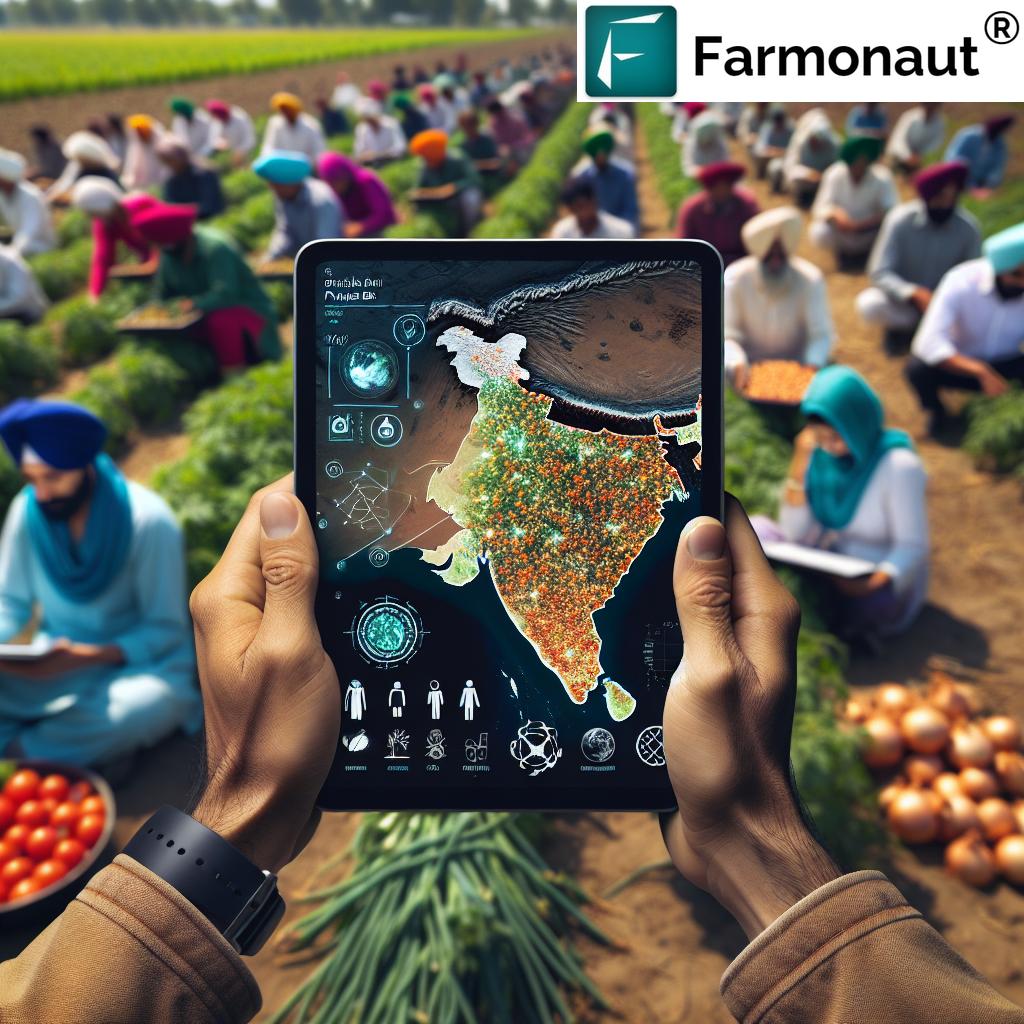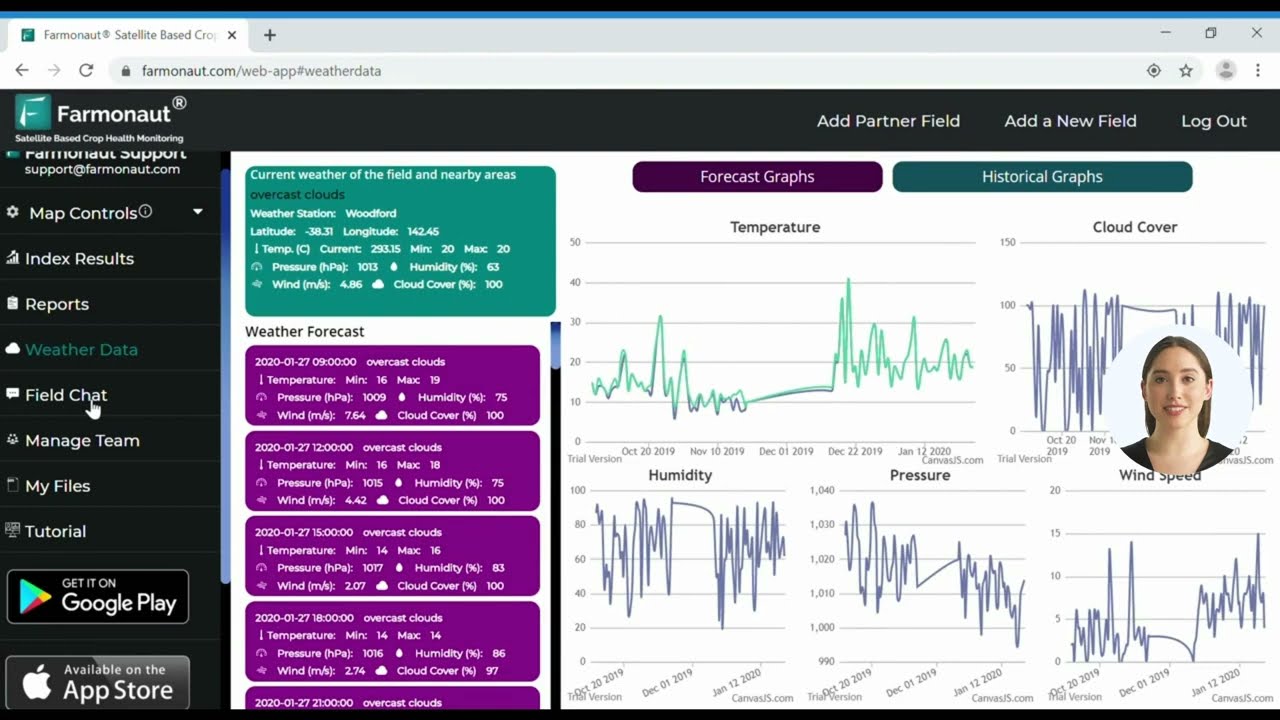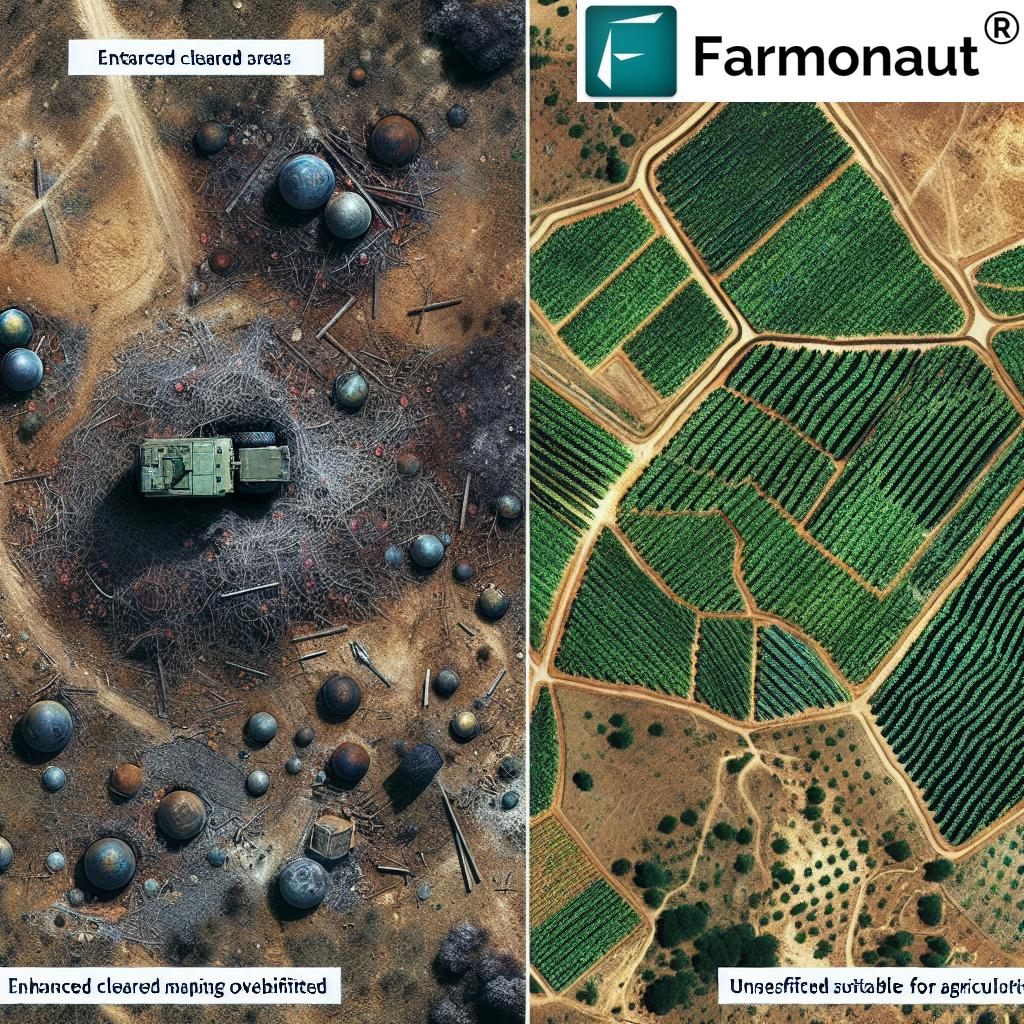Punjab’s Sustainable Revolution: Boosting Tomato and Onion Production with Mechanized Farming and Government Support
“Punjab’s Rs3 billion agricultural project offers subsidies on equipment, seeds, and machinery to boost tomato and onion production.”
We are witnessing a remarkable transformation in Punjab’s agricultural landscape as the region embraces mechanized vegetable farming and sustainable agriculture practices. This groundbreaking initiative focuses on revolutionizing tomato and onion production through the integration of modern farming technology and agritech solutions. In this comprehensive blog post, we’ll explore how Punjab is leading the charge in sustainable farming, empowering farmers, and ensuring food security for generations to come.
The Dawn of a New Agricultural Era in Punjab
Punjab, known as the breadbasket of Pakistan, has long been at the forefront of agricultural innovation. Today, we’re seeing a significant shift towards mechanized vegetable farming, particularly in the cultivation of essential crops like tomatoes and onions. This transformation is not just about increasing yields; it’s about creating a sustainable and prosperous future for Punjab’s farmers.

The Rs3 Billion Game-Changer
At the heart of this agricultural revolution is a massive Rs3 billion project launched by the government. This initiative is set to redefine vegetable cultivation in Punjab, offering substantial subsidies on:
- Agricultural equipment
- High-quality seeds
- Value-addition machinery
The project’s primary goals are to increase crop productivity and optimize the agricultural value chain in selected districts. By providing farmers with the tools and resources they need, we’re paving the way for a more efficient and profitable agricultural sector.
Targeted Districts: The Epicenters of Change
The initiative is strategically focused on several key districts in Punjab, including:
- Sargodha
- Lahore
- Lodhran
- Multan
- Vehari
- Khushab
- Sheikhupura
- Muzaffargarh
These districts have been carefully selected based on their potential for significant improvement in tomato and onion production. By concentrating efforts in these areas, we can maximize the impact of the initiative and create model regions for sustainable agriculture.
Empowering Farmers with Modern Techniques
One of the cornerstones of this initiative is the emphasis on farmer education and training. We understand that introducing new technologies and methods requires proper guidance and support. That’s why the project includes:
- Comprehensive training programs in advanced cultivation techniques
- Introduction to precision agriculture methods
- Hands-on experience with modern farming equipment
- Field schools for practical learning
By empowering farmers with knowledge and skills, we’re not just improving crop yields; we’re investing in the future of Punjab’s agricultural community.
Smart Irrigation: The Key to Sustainable Farming
Water management is crucial in a region where water scarcity is an ongoing concern. The project places a strong emphasis on smart irrigation systems, which offer numerous benefits:
- Efficient water usage
- Reduced water waste
- Improved crop health
- Lower operational costs for farmers
By adopting these advanced irrigation techniques, we’re not only conserving precious water resources but also ensuring that crops receive the optimal amount of hydration for maximum yield.
Group Farming: Strength in Numbers
Another innovative approach being implemented is the concept of group farming. This method brings multiple farmers together to share resources, knowledge, and equipment. The benefits of this approach include:
- Reduced individual costs
- Increased bargaining power
- Improved access to markets
- Enhanced knowledge sharing
Group farming not only makes mechanized farming more accessible to small-scale farmers but also fosters a sense of community and collaboration within the agricultural sector.
“The initiative targets selected districts in Punjab, aiming to increase crop productivity and optimize the agricultural value chain.”
The Role of Agritech in Punjab’s Agricultural Revolution
As we embrace mechanized farming, it’s crucial to recognize the role of agritech solutions in this transformation. Companies like Farmonaut are at the forefront of this revolution, offering innovative tools and technologies that complement the government’s initiatives.
Farmonaut provides satellite-based farm management solutions that can significantly enhance the effectiveness of mechanized farming. Their platform offers:
- Real-time crop health monitoring
- AI-based advisory systems
- Resource management tools
These technologies align perfectly with the goals of Punjab’s agricultural project, offering farmers additional support in their journey towards sustainable and efficient farming practices.
The Economic Impact: From Farm to International Markets
One of the most exciting aspects of this initiative is its potential to open up international markets for Punjab’s farmers. By improving crop quality and yield through mechanized farming and sustainable practices, we’re creating opportunities for farmers to:
- Meet international quality standards
- Increase export potential
- Diversify their market reach
- Improve their economic standing
This access to international markets not only benefits individual farmers but also contributes to the overall economic prosperity of the region.
Sustainable Practices: A Win-Win for Farmers and the Environment
At the core of this agricultural revolution is a commitment to sustainability. The mechanized farming practices and technologies being introduced are designed to:
- Reduce environmental impact
- Conserve natural resources
- Improve soil health
- Minimize chemical usage
By adopting these sustainable measures, we’re not only ensuring better yields for farmers but also preserving Punjab’s agricultural lands for future generations.
The Power of Information: Dedicated Helpline and Online Resources
To ensure that farmers have easy access to information about these innovative agricultural subsidy programs, the government has implemented:
- A dedicated helpline for immediate assistance
- Comprehensive online resources
- Regular updates on the agriculture department’s website
- Information centers at local agricultural offices
This multi-channel approach ensures that farmers can easily access the information they need to make the most of the available programs and technologies.

A Comparative Look: Traditional vs. Mechanized Farming in Punjab
To truly appreciate the impact of this agricultural revolution, let’s compare traditional farming methods with the new mechanized approach for tomato and onion production in Punjab:
| Aspect | Traditional Farming | Mechanized Farming |
|---|---|---|
| Crop Yield (estimated tons/hectare) | 15-20 | 30-40 |
| Water Usage (estimated liters/hectare) | 8000-10000 | 5000-6000 |
| Labor Requirements (estimated person-days/hectare) | 100-120 | 50-60 |
| Production Costs (estimated Rs/hectare) | 200,000-250,000 | 150,000-180,000 |
| Government Subsidies (estimated Rs/farmer) | 10,000-20,000 | 50,000-100,000 |
| Access to International Markets | Low | High |
| Sustainability Score (1-10 scale) | 4-5 | 8-9 |
As we can see from this comparison, mechanized farming offers significant advantages in terms of yield, resource efficiency, and economic benefits. The increased government subsidies and improved access to international markets further underscore the potential of this new approach.
The Road Ahead: Challenges and Opportunities
While the future of Punjab’s agriculture looks bright with these initiatives, it’s important to acknowledge the challenges that lie ahead:
- Initial investment costs for farmers
- Training and adaptation to new technologies
- Balancing traditional knowledge with modern practices
- Ensuring equitable access to subsidies and resources
However, with the robust support system in place and the determination of Punjab’s farming community, we’re confident that these challenges can be overcome, paving the way for a more prosperous and sustainable agricultural sector.
Embracing Technology: The Role of Satellite Monitoring
One of the most exciting aspects of this agricultural revolution is the integration of satellite monitoring technology. This advanced approach offers numerous benefits for tomato and onion farmers in Punjab:
- Real-time crop health monitoring
- Early detection of pest and disease outbreaks
- Optimization of irrigation schedules
- Precise application of fertilizers and pesticides
By leveraging satellite data, farmers can make more informed decisions, leading to improved yields and reduced resource wastage. This technology aligns perfectly with the government’s goal of promoting sustainable and efficient farming practices.
Explore Farmonaut’s API for advanced agricultural insights
The Impact on Food Security and Price Stability
The focus on boosting tomato and onion production through mechanized farming is not just about increasing yields; it’s also about ensuring food security and price stability for these essential vegetables. By implementing these measures, we can expect:
- More consistent supply of tomatoes and onions throughout the year
- Reduced price fluctuations in the market
- Improved accessibility of these staple vegetables for consumers
- Enhanced ability to meet domestic demand and reduce reliance on imports
This stability in production and pricing will have a positive ripple effect on the entire agricultural value chain, from farmers to consumers.
Empowering Women in Agriculture
An often overlooked aspect of agricultural modernization is its potential to empower women in farming communities. The shift towards mechanized farming and the introduction of new technologies can create opportunities for women to:
- Take on more prominent roles in farm management
- Develop new skills in operating advanced machinery
- Participate in training programs and knowledge-sharing initiatives
- Contribute to decision-making processes in agricultural enterprises
By ensuring that women have equal access to these opportunities, we can foster a more inclusive and diverse agricultural sector in Punjab.
Access Farmonaut’s API Developer Docs for integration insights
The Future of Farming: Precision Agriculture and IoT
As we look to the future, the integration of precision agriculture and Internet of Things (IoT) technologies promises to take Punjab’s agricultural revolution to new heights. These advanced technologies offer:
- Sensor-based monitoring of soil conditions and crop health
- Automated irrigation and fertilization systems
- Data-driven decision-making tools for farmers
- Predictive analytics for crop yield and market demand
By embracing these cutting-edge solutions, Punjab’s farmers can stay at the forefront of agricultural innovation, ensuring their competitiveness in both domestic and international markets.
Conclusion: A Bright Future for Punjab’s Agriculture
As we’ve explored throughout this blog post, Punjab’s agricultural landscape is undergoing a remarkable transformation. The Rs3 billion project focusing on mechanized vegetable farming, particularly for tomatoes and onions, is set to revolutionize the sector. With government support, advanced technologies, and a commitment to sustainability, Punjab’s farmers are well-positioned to meet the challenges of the future.
This comprehensive approach promises not only to boost crop productivity but also to ensure food security, promote sustainable practices, and open up new economic opportunities for farmers. As we move forward, the continued collaboration between farmers, government agencies, and technology providers will be crucial in realizing the full potential of this agricultural revolution.
Punjab’s sustainable revolution in tomato and onion production serves as a model for agricultural transformation, demonstrating how modern farming techniques, government support, and innovative technologies can come together to create a more prosperous and sustainable future for all.
FAQ Section
Q1: What are the main goals of Punjab’s agricultural project?
A1: The primary goals are to increase crop productivity, optimize the agricultural value chain, introduce mechanized farming for tomatoes and onions, and promote sustainable agriculture practices.
Q2: How much funding has been allocated for this initiative?
A2: The government has launched a Rs3 billion project to support this agricultural revolution in Punjab.
Q3: Which districts in Punjab are targeted by this initiative?
A3: The project focuses on several districts including Sargodha, Lahore, Lodhran, Multan, Vehari, Khushab, Sheikhupura, and Muzaffargarh.
Q4: What kind of subsidies are being offered to farmers?
A4: Farmers can access substantial subsidies on agricultural equipment, high-quality seeds, and value-addition machinery.
Q5: How does this project promote sustainable farming?
A5: The initiative emphasizes smart irrigation systems, promotes efficient resource use, and introduces environmentally friendly farming practices.
Q6: What training opportunities are available for farmers?
A6: Farmers can access training in advanced cultivation techniques, precision agriculture methods, and modern farming technology through field schools and comprehensive programs.
Q7: How does this initiative aim to improve market access for farmers?
A7: By enhancing crop quality and yield, the project aims to help farmers meet international standards, thereby increasing their access to international markets.
Q8: What role does technology play in this agricultural revolution?
A8: Technology, including satellite monitoring, precision agriculture tools, and smart irrigation systems, plays a crucial role in optimizing farming practices and improving yields.
Q9: How can farmers access information about these programs?
A9: Farmers can use a dedicated helpline, access online resources, visit local agricultural offices, or check the agriculture department’s website for information.
Q10: What are the long-term benefits expected from this initiative?
A10: The long-term benefits include increased food security, improved farmer incomes, sustainable agricultural practices, and enhanced competitiveness in global markets.



















